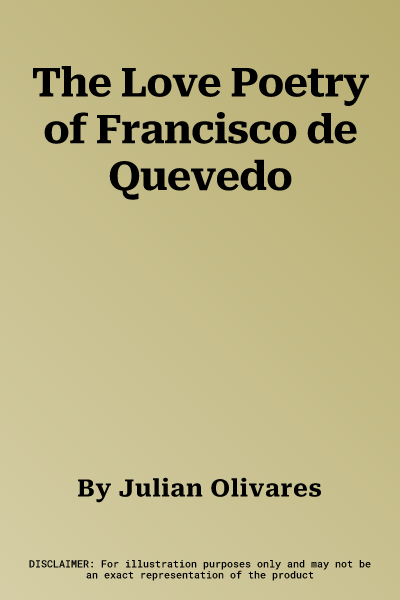Julian Olivares
(Author)The Love Poetry of Francisco de QuevedoHardcover, 30 June 1983

Temporarily out of stock
Free Delivery
Cash on Delivery
15 Days
Free Returns
Secure Checkout

Part of Series
Cambridge Iberian and Latin American Studies
Part of Series
British and American Playwrights, 1750-1920
Print Length
192 pages
Language
English
Publisher
Cambridge University Press
Date Published
30 Jun 1983
ISBN-10
0521243629
ISBN-13
9780521243629
Description
Product Details
Author:
Book Format:
Hardcover
Date Published:
30 June 1983
ISBN-10:
0521243629
ISBN-13:
9780521243629
Language:
English
Location:
Cambridge
Pages:
192
Publisher: